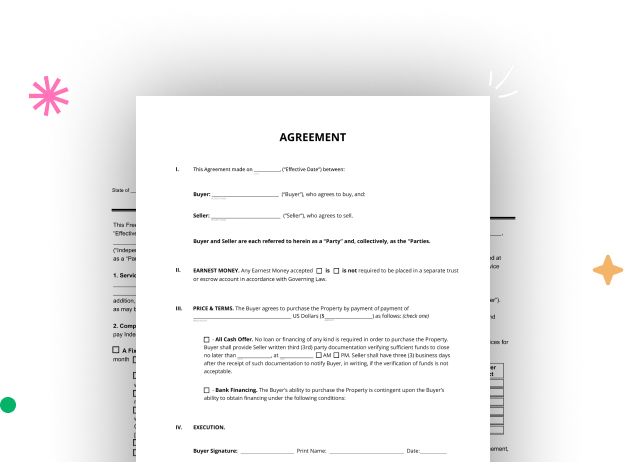

Visit the DocHub website and sign up for the free trial. This provides access to every feature you’ll require to create your Non-Marital Cohabitation Form without any upfront cost.
Sign in to your DocHub account and go to the dashboard.
Click New Document in your dashboard, and choose Create Blank Document to design your Non-Marital Cohabitation Form from the ground up.
Place various elements such as text boxes, radio buttons, icons, signatures, etc. Arrange these elements to suit the layout of your form and designate them to recipients if needed.
Organize your form in seconds by adding, moving, removing, or combining pages with just a few clicks.
Turn your newly designed form into a template if you need to send many copies of the same document repeatedly.
Send the form via email, distribute a public link, or even post it online if you want to collect responses from more recipients.